There’s something undeniably satisfying about watching years of dirt blast off a driveway or siding in seconds. It’s no wonder power washing has become one of the most popular ways to freshen up a home’s exterior. But here’s the thing—just because it looks easy doesn’t mean it’s always safe.
Before you pull the trigger on that high-pressure sprayer, it’s worth asking: Is power washing really safe for your home? The answer isn’t a simple yes or no—it depends on how it’s done, what surfaces you’re cleaning, and whether you’re using the right tools for the job.
In this post, we’ll break down what homeowners need to know before diving in. You’ll learn the difference between pressure and power washing, what areas of your home are safe to clean (and which aren’t), and why power washing services might be the safer, smarter option—especially when delicate materials or windows are involved.
So whether you’re tackling spring cleaning or just tired of looking at that grimy siding, read on. This guide could save your paint, your windows—and your weekend.
Power Washing vs. Pressure Washing: What’s the Difference?
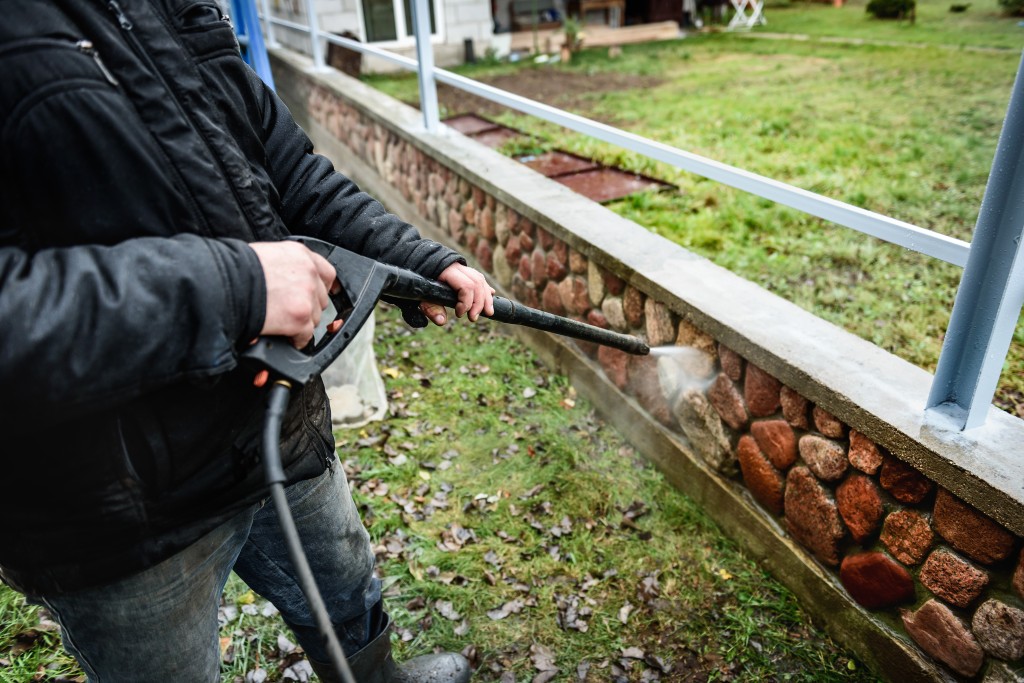
Let’s clear something up right away—pressure washing and power washing aren’t the exact same thing, even though most people (and even some pros) use the terms interchangeably. While both involve blasting water at high pressure to clean surfaces, the key difference comes down to heat.
Pressure washing uses cold water under high pressure to clean surfaces like driveways, patios, and decks. It’s great for removing loose paint, dirt, mold, and general grime. It gets the job done quickly and doesn’t require any special setup beyond the machine itself.
Power washing, on the other hand, takes it up a notch. It combines high pressure with heated water, which makes it more effective at breaking down grease, oil stains, and stuck-on grime. It’s especially useful for surfaces like concrete or heavily stained stone, where heat helps loosen what pressure alone might not.
But here’s where it gets tricky—neither method is automatically “safe” for every part of your home. Using too much pressure, or using the wrong technique, can damage paint, dent siding, or even crack windows. That’s why many homeowners turn to professional power washing services—they know how to choose the right method and pressure setting for each surface, minimizing risk while maximizing results.
Knowing the difference between these two cleaning methods is the first step to making sure your home gets a proper clean—without any unexpected damage.
Is Power Washing Safe for All Parts of Your Home? Let’s Break It Down
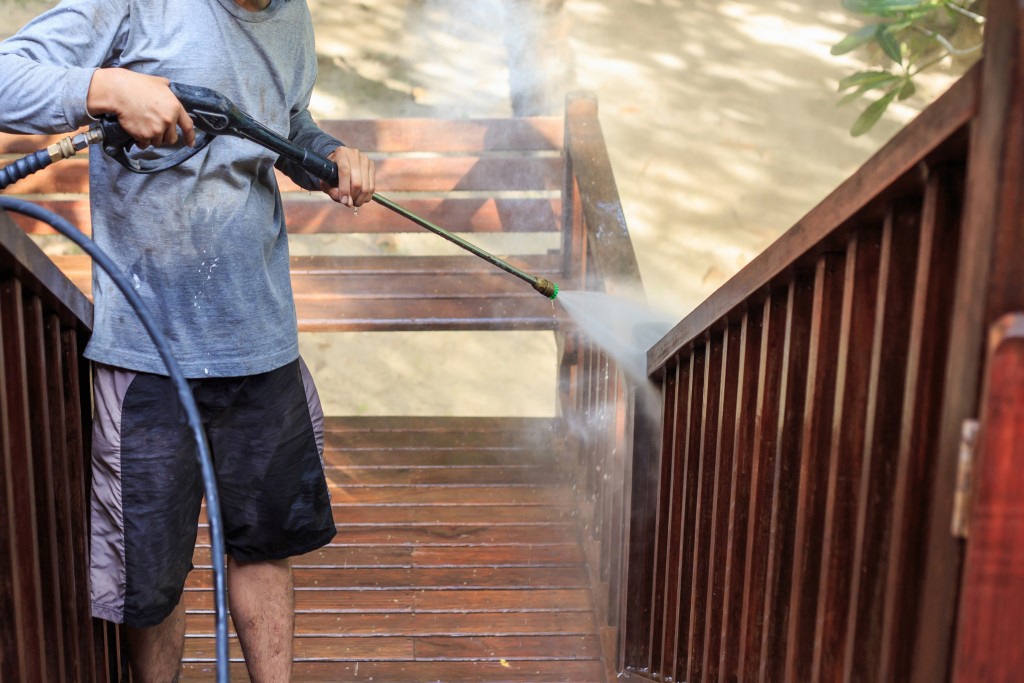
Power washing might seem like the perfect all-in-one solution for cleaning your home’s exterior—but not every surface is built to handle that level of force. Some areas thrive under pressure; others can be seriously damaged if you’re not careful. Let’s break it down so you know what’s safe, what’s risky, and where you might want to call in the pros—especially experienced window washers or pressure washing technicians.
Siding? In most cases, yes. Vinyl, brick, and fiber cement can usually be cleaned safely with power or pressure washing—if the right pressure level is used. Too much force, though, and you can crack panels or drive water behind them, leading to mold or water damage.
Roofs? Usually a no-go. High-pressure water can strip protective granules off shingles or even dislodge them entirely. Roofs often require a gentler “soft wash” approach that uses low pressure and specialized cleaning solutions.
Windows? Be very careful here. Glass and window seals are incredibly vulnerable to damage from power washing. Directing high-pressure water at your windows can crack the glass or break the seal, leading to leaks or fogging between panes. If your windows need cleaning, it’s best to call experienced window washers who know how to clean them thoroughly and safely.
Decks and fences? It depends on the material. Wood can be easily gouged or splintered by high pressure, while composite materials can usually take a bit more. Again, it comes down to using the right settings and technique.
The bottom line? Power washing is safe when it’s done properly—but one-size-fits-all pressure is a recipe for costly repairs. When in doubt, consult a pro who understands which surfaces can handle the power, and which need a gentler touch.
Common Risks of Improper Power Washing
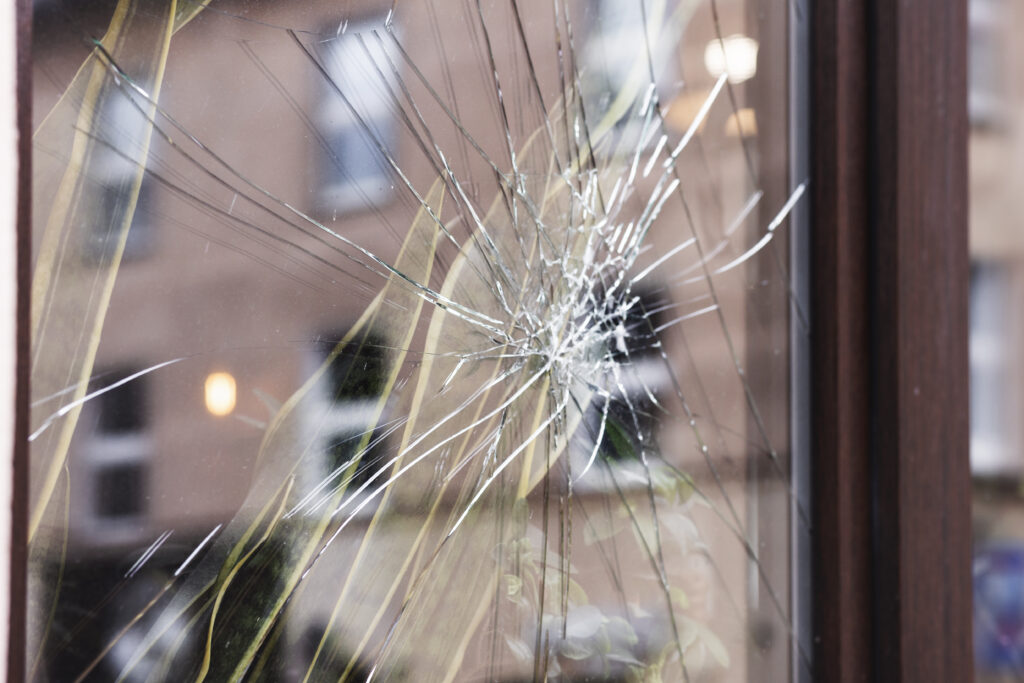
Power washing looks simple enough—pull the trigger, blast away grime, admire the results. But when done incorrectly, it can cause more harm than good. A few wrong moves and you could end up with expensive repairs, damaged surfaces, or even injury. That’s why many homeowners turn to power washing services that know how to avoid the most common (and costly) mistakes.
One of the biggest risks is surface damage. High-pressure water can strip paint, dent vinyl siding, and splinter wood decks if the wrong nozzle or setting is used. It might not be obvious right away, but over time, that kind of wear adds up—leaving your home looking worse, not better.
Water intrusion is another issue. When water is forced behind siding, under shingles, or around window frames, it can seep into walls and insulation. This creates a perfect environment for mold and mildew to grow—something no homeowner wants to deal with.
Windows are especially vulnerable. Directing a high-pressure stream at glass can crack it or break the seal around the panes. That’s why professionals often recommend using soft washing methods near windows or leaving that task to experienced window washers who specialize in safe, streak-free cleaning.
And don’t forget about personal safety. Power washers are strong enough to cut through skin, cause injuries, or damage landscaping if used carelessly. If you’re not confident handling the equipment, or you’re working on ladders or uneven ground, it’s worth calling in a pro.
Hiring experienced power washing services doesn’t just save time—it protects your home and keeps you out of harm’s way.
DIY vs. Professional Power Washing: What’s Right for You?
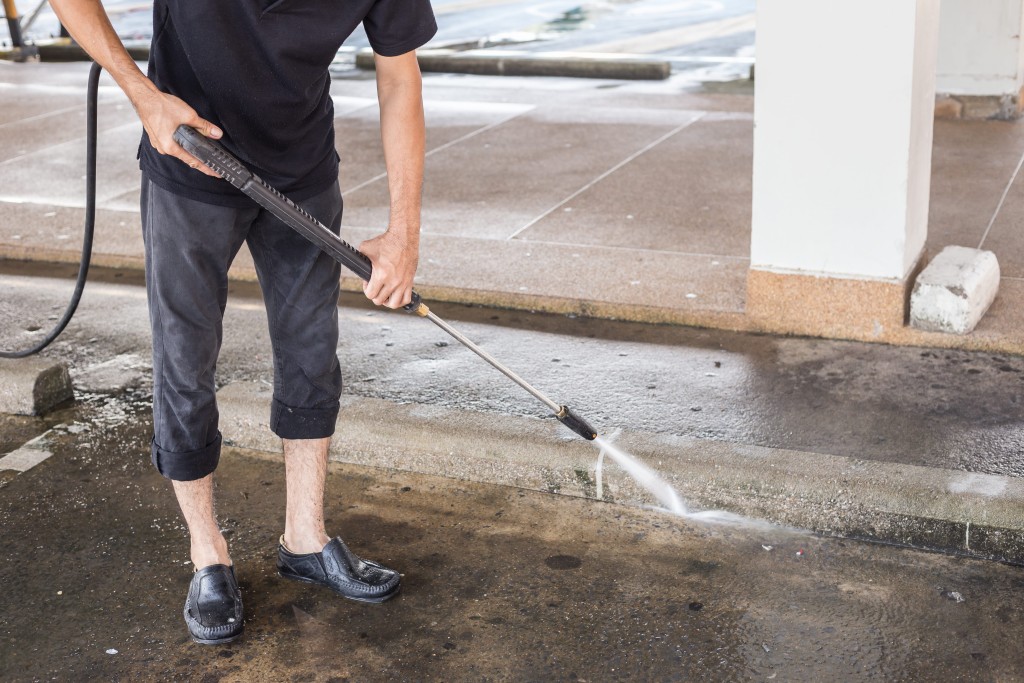
If you’ve ever thought about renting a pressure washer for the weekend and tackling the grime yourself, you’re not alone. DIY power washing can feel like a satisfying, cost-effective way to clean your home. But before you roll up your sleeves, it’s important to weigh the pros and cons—and know when calling in the pros might actually be the smarter move.
DIY can work well for smaller jobs, like cleaning patio furniture, rinsing off a concrete path, or giving your deck a light refresh. But even these tasks require the right technique, safety precautions, and understanding of how much pressure each surface can handle. Without that knowledge, you risk doing real damage—or wasting a lot of time with minimal results.
That’s where professionals come in. Power washing services bring more than just high-end equipment—they bring experience. They know how to adjust pressure levels for different materials, avoid damage, and get results that last. Many also offer extras like gutter flushing and even window cleaning, so you get a comprehensive exterior refresh in one visit.
Windows are a perfect example of where DIY can go wrong. It’s easy to think you can power wash them, but without the right method or angle, you could crack the glass or force water into the seals. Experienced pros—or dedicated window cleaning specialists—know how to get that streak-free shine without risking damage.
So, what’s right for you? If you’re dealing with tough stains, multi-level surfaces, or just want peace of mind, hiring a professional is a smart choice. Sometimes, the best DIY decision is knowing when not to do it yourself.
How to Choose a Safe and Reliable Power Washing Company
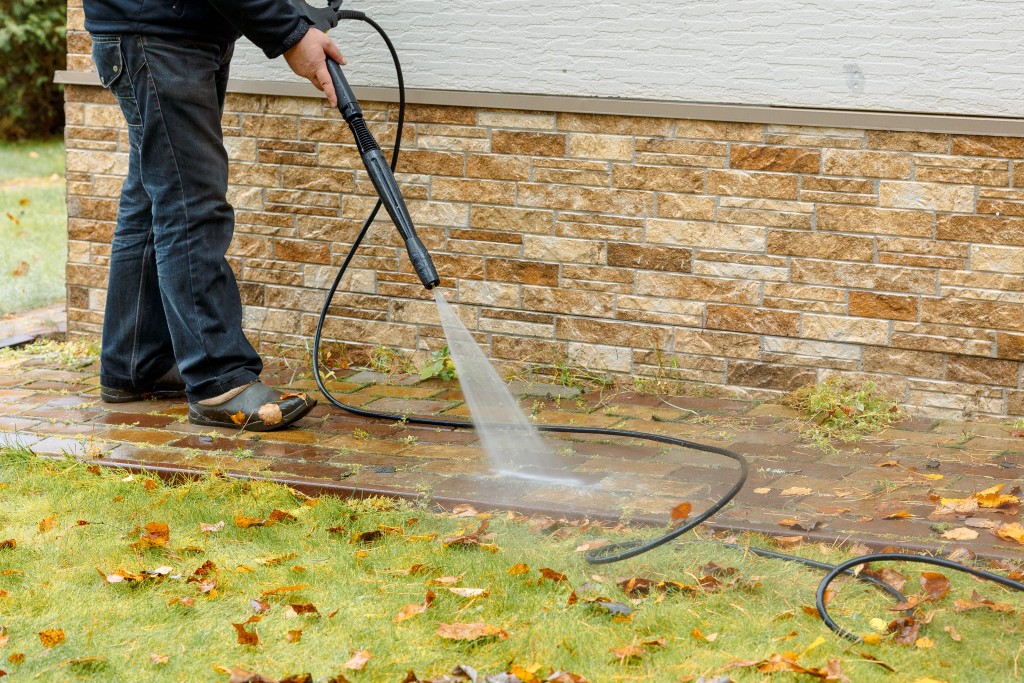
Not all power washing services are created equal. Hiring the wrong crew can leave you with damaged siding, broken windows, or a half-cleaned driveway. On the flip side, a trustworthy, experienced team can make your home look brand new—without the risks. So how do you know who to trust?
Start with experience and specialization. Look for a company that has a proven track record with homes similar to yours. Some companies focus mostly on commercial work, while others specialize in residential exterior cleaning, including siding, decks, driveways, and even delicate surfaces like wood and stucco.
Licensing and insurance are non-negotiable. A reputable company should carry full liability insurance to protect you in case something goes wrong. Don’t be shy about asking for proof—they should be happy to provide it.
Reviews and recommendations matter too. Check Google, Yelp, or your local neighborhood groups to see what past customers are saying. Look for companies with consistently positive feedback, especially about their professionalism, safety practices, and quality of work.
Ask what’s included. Some power washing services go above and beyond by bundling in extras like gutter cleaning or even window cleaning, so your entire exterior gets a refresh in one go. Others may charge extra for certain areas, so make sure you know what you’re paying for.
Lastly, pay attention to how they handle your questions. A good company will be upfront about pricing, explain their process, and offer clear guidance on what your home needs. If they’re vague or pushy, it might be a sign to keep looking.
Safe, Effective Power Washing Starts with the Right Approach
Power washing can do wonders for your home—but only when it’s done safely and correctly. As we’ve covered, not all surfaces can handle high pressure, and a little too much force in the wrong place can lead to cracked windows, damaged siding, or even costly repairs.
That’s why understanding the difference between pressure and power washing, knowing what areas need special care, and choosing the right approach—DIY or professional—makes all the difference. And when it comes to tricky areas like windows or rooftops, trusting experienced pros or specialized power washing services is often the smartest move.
At the end of the day, power washing isn’t just about a cleaner look—it’s about preserving your home’s structure, value, and curb appeal for the long run.
Thinking about giving your home an exterior refresh? Reach out to a trusted provider of power washing services in your area, or check out our other guides on smart home maintenance to help you get started the right way.
Your home deserves care that goes beyond the surface—let’s keep it looking its best, the safe way.